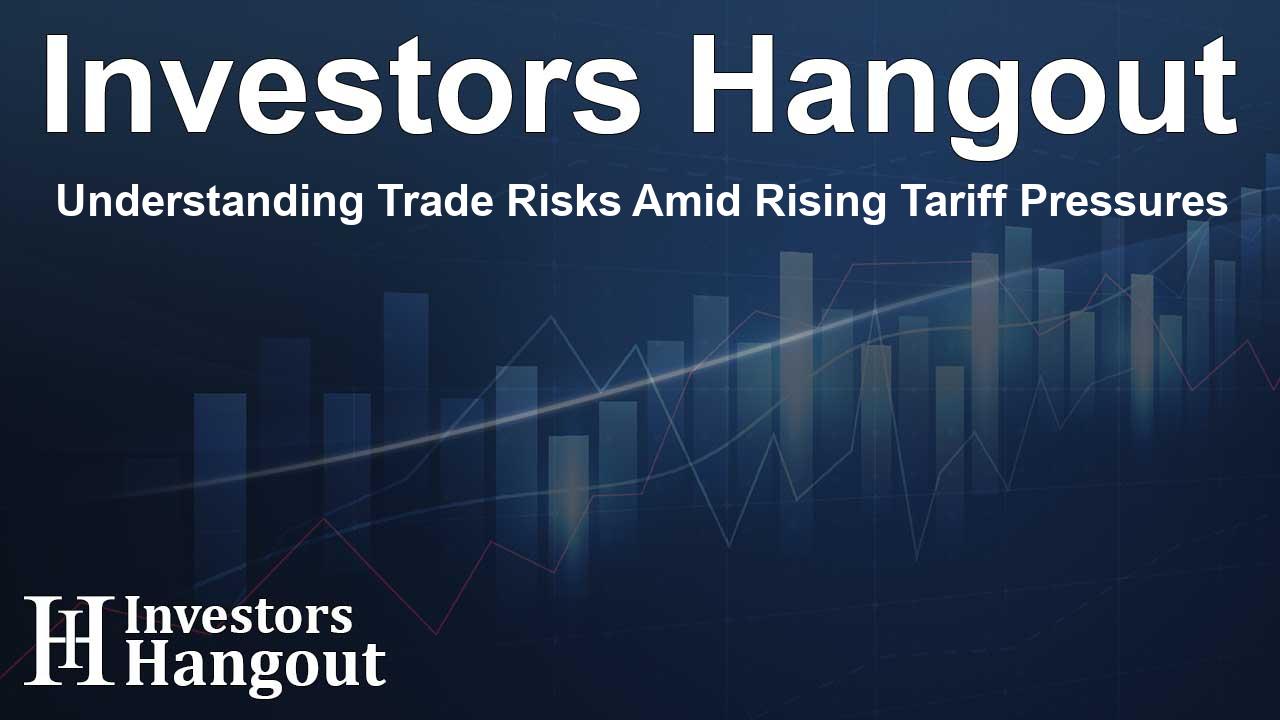Understanding Trade Risks Amid Rising Tariff Pressures

Understanding Trade Risks Amid Rising Tariff Pressures
The landscape of U.S. trade is witnessing significant scrutiny, especially as the administration hints at possible escalation in tariffs. Analysts at Barclays are closely monitoring these developments, particularly with the notable rise of Mexico as the United States' largest trading partner. This shift raises critical concerns regarding how potential import duties might affect various sectors.
Historical Context of U.S.-China Trade Relations
When reflecting on the turbulence of the 2019 U.S.-China trade war, experts point to useful lessons. During that timeframe, there was a remarkable decline in domestic rail and trucking volumes, alongside contractions in global freight markets. Such tariffs can impact trade flows with both Canada and Mexico; however, it is essential to note that trade among these North American partners saw growth under the previous U.S.-Mexico-Canada Agreement.
The Global Impact of Tariff Escalation
Should tariff escalations target China, the fallout could be particularly severe for global freight providers and Western railroads, especially those that depend heavily on grain exports. Furthermore, broader tariff actions affecting Europe or North America might disrupt vital ground transportation sectors, such as truck and rail networks, leading to widespread operational challenges.
Consumer Goods Trends and Sourcing Shifts
Consumer goods remain a significant focus area amid these shifts. Electronics comprise approximately one-third of U.S. consumer goods imports, predominantly sourced from China and Mexico. Additionally, there has been a notable transition of apparel and footwear imports away from China towards Southeast Asia in recent years. Renowned companies like Ralph Lauren have reduced their dependency on China dramatically, with sourcing metrics now dropping to single digits.
Industrial Sectors at Risk
Moreover, industries that heavily rely on imports from Mexico, China, and Canada are not immune to these tariff pressures. Key sectors that face risks include automotive components, HVAC equipment, and power tools. Industry giants such as Stanley Black & Decker and Rockwell Automation may experience increased pricing pressures. Conversely, net exporters like Honeywell and 3M might navigate these challenges more adeptly, possibly benefiting from the shifting landscape.
Logistics and Global Supply Chain Dynamics
European logistics firms also face exposure to trans-Atlantic and trans-Pacific trade routes. Potential disruptions, such as port strikes or other logistical challenges, could escalate issues within the already sensitive global supply chains, adding to the complexities businesses must navigate in this evolving trade environment.
Frequently Asked Questions
What role does Mexico play in U.S. trade?
Mexico has become the largest trading partner for the U.S., influencing supply chain dynamics amid potential tariff escalations.
How did the 2019 U.S.-China trade war affect logistics?
During the trade war, domestic rail and trucking volumes significantly decreased, impacting overall global freight markets.
Which sectors are most vulnerable to new tariffs?
Sectors such as automotive, HVAC, and power tools are particularly at risk due to their reliance on imports from Mexico, China, and Canada.
What adjustments are companies making in sourcing?
Many companies, like Ralph Lauren, are shifting sourcing from China to other regions like Southeast Asia to mitigate tariff impacts.
How could European companies be affected?
European logistics companies might face challenges in trans-Atlantic and trans-Pacific routes, particularly due to potential port disruptions.
About Investors Hangout
Investors Hangout is a leading online stock forum for financial discussion and learning, offering a wide range of free tools and resources. It draws in traders of all levels, who exchange market knowledge, investigate trading tactics, and keep an eye on industry developments in real time. Featuring financial articles, stock message boards, quotes, charts, company profiles, and live news updates. Through cooperative learning and a wealth of informational resources, it helps users from novices creating their first portfolios to experts honing their techniques. Join Investors Hangout today: https://investorshangout.com/
Disclaimer: The content of this article is solely for general informational purposes only; it does not represent legal, financial, or investment advice. Investors Hangout does not offer financial advice; the author is not a licensed financial advisor. Consult a qualified advisor before making any financial or investment decisions based on this article. The author's interpretation of publicly available data shapes the opinions presented here; as a result, they should not be taken as advice to purchase, sell, or hold any securities mentioned or any other investments. The author does not guarantee the accuracy, completeness, or timeliness of any material, providing it "as is." Information and market conditions may change; past performance is not indicative of future outcomes. If any of the material offered here is inaccurate, please contact us for corrections.